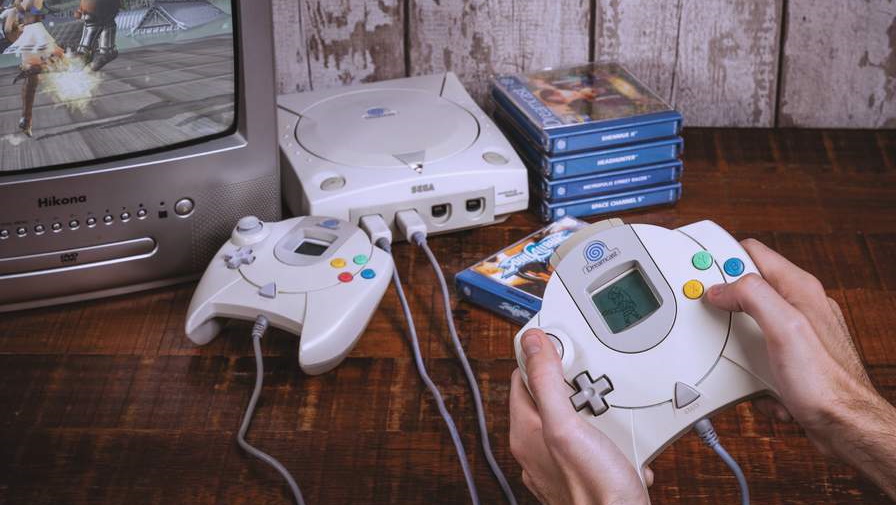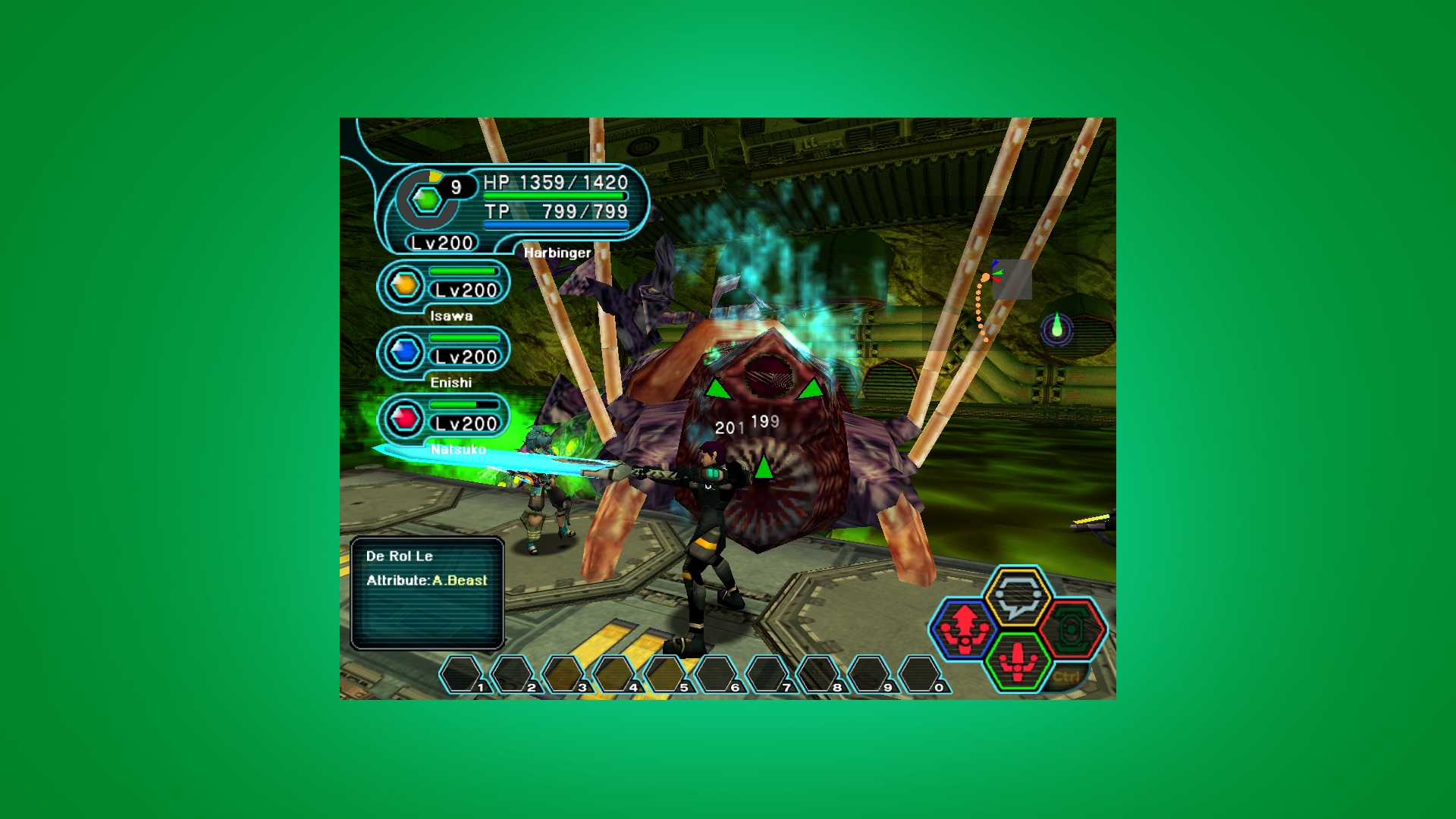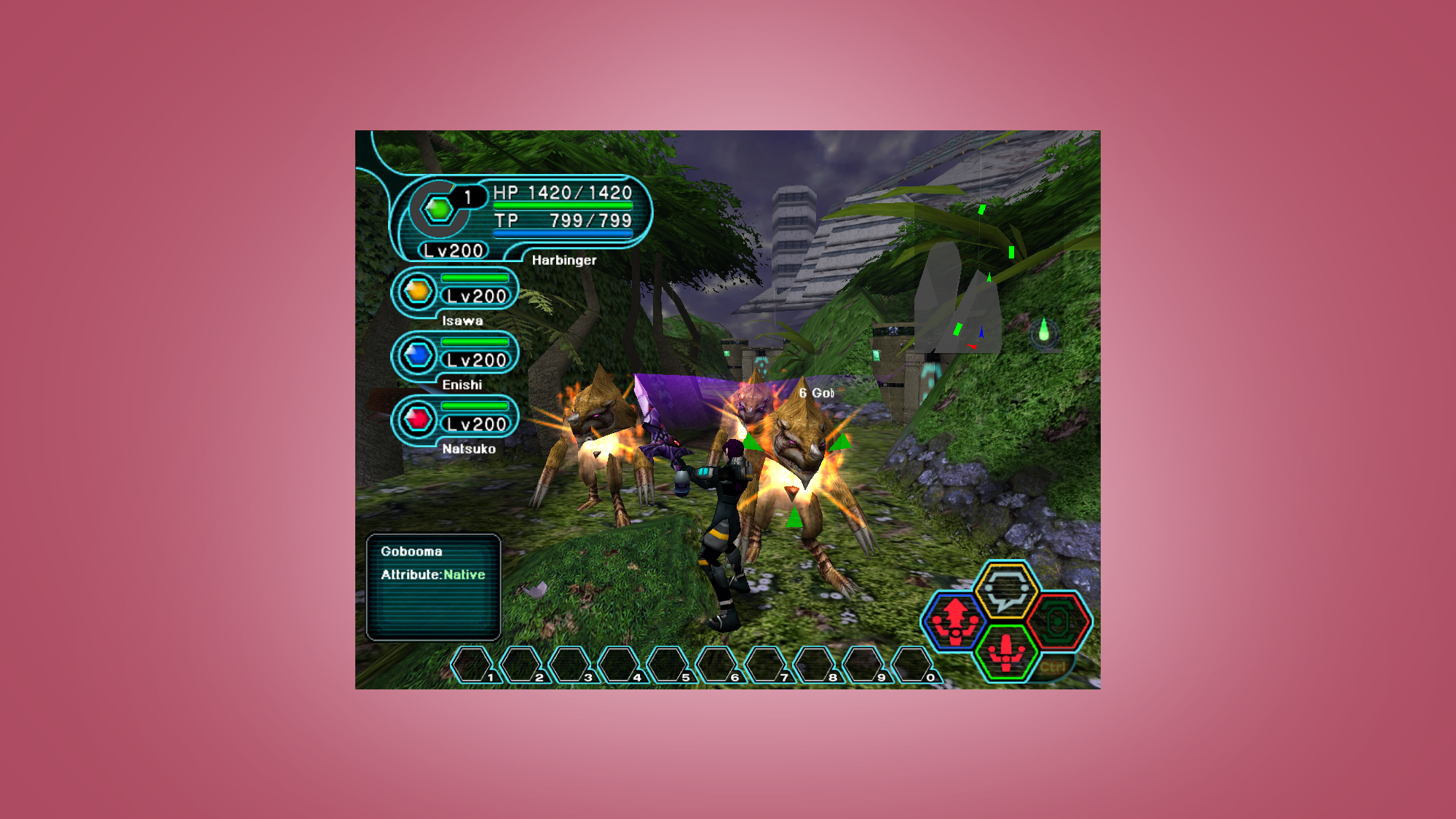
Sign up for breaking news, reviews, opinion, top tech deals, and more.
You are now subscribed
Your newsletter sign-up was successful
It’s the tail end of the year 2000. The launch of the PlayStation 2 has heralded the arrival of the sixth console generation. And with it, Sony is about to permanently muscle one of its biggest competitors out of the console industry. Sega has put up a strong front with the Dreamcast, a console well ahead of its time with a stellar lineup of exclusive games and arcade-perfect ports, But it’s not long before the little system that could buckles under Sony’s might.
What the Dreamcast lacked in commercial power, it more than made up for in its library of now-classic exclusives. Sega’s cucumber-cool mascot blazed a trail into 3D with Sonic Adventure. Smilebit shone a light on Japanese and American counterculture with Jet Set Radio. And fighting game fans were well-served with pristine ports of Soul Calibur and Street Fighter 3: Third Strike.
Yet, the Dreamcast’s most ambitious game launched perhaps a little too late. Right as the console had one foot in the grave, Sega launched Phantasy Star Online, a multiplayer-focused dungeon crawler that was, perhaps, vastly more influential than its developer, Sonic Team, could’ve possibly anticipated.
Not quite an MMO

Phantasy Star Online (PSO) often gets billed as an MMORPG, as well as the first of its kind on console. But that’s not wholly true. PSO did launch with MMO-adjacent features like the Hunter’s License subscription model and player-populated lobbies, but actual player count during gameplay maxes out at four.
Instead, PSO’s online features can be viewed as experimental. It wasn’t the only Dreamcast game to sport online multiplayer. Games including Quake 3 Arena and puzzler ChuChu Rocket both let players compete online. However, PSO’s implementation of online multiplayer was perhaps the most successful on Dreamcast, and the functionality continued with the game’s Xbox and Gamecube ports, as well as the definitive Blue Burst version on PC.
It would be more accurate to paint Phantasy Star Online as Sega’s take on the Diablo series; instanced dungeons where players progress by fighting mobs and bosses, earning powerful loot and strengthening their characters through level-ups and a stat-boosting Mag pet which can evolve by feeding it certain items.
Then, after a successful trek through one of its many monster-infested maps, return to your home starship of Pioneer 2, sell off unwanted loot, bank your Meseta (the game’s currency) to avoid losing it upon death, and set out again for even harder challenges.
Sign up for breaking news, reviews, opinion, top tech deals, and more.
While Phantasy Star Online’s gameplay bears passing resemblance to Blizzard’s demonic dungeon crawler, it may in turn have influenced Diablo’s later entries. That’s because PSO’s difficulty settings are strikingly similar to Diablo’s Torment levels. You’re not expected to tackle PSO’s harder difficulties with a fresh character. In fact, doing so will swiftly land you in Pioneer 2’s medical wing. Instead, you’ll need to work your way up to them by looting and leveling through the default setting first.
Journey to Ragol

So ensues a gameplay loop that’s as addictive today as it was back at the turn of the century. Hitting the level cap of 200 doesn’t happen overnight – EXP gain in PSO is actually quite slow at the lower difficulties – but almost every run will see you returning with more powerful equipment.
As you rise up through each difficulty level, your chances of encountering rare mobs and weapon drops increases. There’s still nothing quite like the tingling feeling of spotting an enemy with an alternate color variant. Better still is the hair-raising jingle signifying a rare loot drop that could vastly improve your combat potential – and cool factor – exponentially.
At the start of your journey, you’ll be fighting relatively weak mobs with standard sabers, handguns, rifles, staves, or whatever best fits your chosen class. As you ascend through the ranks up to Ultimate difficulty – and with a bit of loot table luck on your side – you’ll find yourself kitted out with chainsaw blades, grenade launchers, dual sabers, railguns and all kinds of sci-fi weapons of mass destruction. It’s so satisfying to see your character evolve this way; while their appearance won’t change, their weapons certainly will.
Phantasy Star Online is still very much playable today on PC via private servers, some of which have pretty respectable player counts
And it’s all made possible by a simple, moreish gameplay loop that Sonic Team absolutely nailed on its first at-bat. No future Phantasy Star title has been able to replicate what made PSO so special. Phantasy Star Universe muddied the intimate dungeon crawling experience with a dull story mode, and ranged weapons required ammunition. Phantasy Star Online 2, while certainly fun, feels convoluted with countless forms of currency, confusing progression and an awkward freemium business model.
PSO 2’s latest iteration, New Genesis, takes the format to a semi-open world format, but currently finds itself floundering with mediocre combat and just a relative lack of content that sees player numbers dwindling.
I’d say it’s a pretty dire time to be a Phantasy Star fan, but that’s not entirely true. Phantasy Star Online is still very much playable today on PC via a number of private servers, some of which have pretty respectable player counts. I find myself diving into these from time to time, and not just for the nostalgia hit, as PSO remains brilliantly fun both solo and with friends to this day.
They say truly good games are timeless. That’s true of most of Sega’s first-party output on the Dreamcast, but none more so than with Phantasy Star Online. If you’ve yet to see what all the fuss is about, it’s well worth tracking down a copy of the game, or downloading one of the private servers on PC. And who knows, there’s every chance Sega could look to reverse the series’ dire straits with a full-blown remaster. A man can always dream.

Rhys is TRG's Hardware Editor, and has been part of the TechRadar team for over four years. Particularly passionate about high-quality third-party controllers and headsets, Rhys strives to provide easy-to-read, informative coverage on gaming hardware of all kinds. As for the games themselves, Rhys is especially keen on fighting and racing games, as well as soulslikes and RPGs.